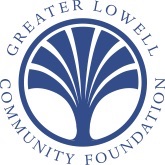There still is hope for female scientists.
A recent blog post came out in Scientific American by Radhika Nagpal where she talks about her life as a tenure-track academic professor at Harvard University (1). Many of us have already imagined the stereotypical life of a Harvard professor — constantly working, hunched over a desk writing grants into the wee hours of the morning. We believe that every academic professor is not able to maintain a good work-life balance. In fact, one of my own female advisors gave me this piece of advice: “If you want kids, the quality of the time that you spend with them is important; not the quantity of time. So make sure you get a good nanny.” A good nanny? So that as-a-matter-of-fact statement solidified for me what the life of an academic professor would be like. And I certainly didn’t want that.
And then I read Dr. Nagpal’s account of her life as an academic professor where she is able to maintain a wonderful work-life balance…at Harvard, no less! She seems to seamlessly be able to integrate her family life into her career. To be quite honest, I cringed a little just typing that sentence — how I have been conditioned to believe that your family life needs to integrate into your career. Regardless, here’s my take-away from her blog.
“I stopped taking advice”: And she’s right. What works for one person may not work for you. Yes, it is great to listen to the roads that others’ took to get to where they are, but it was their road and not yours. Listen to yourself (read: see the “best ‘whole’ person” you can be section below). There is no one road to success, and the roads vary from person to person.
“I work a fixed number of hours and in a fixed amount of time”: This section of her blog really stuck with me. Within the last year, I’ve graduated with PhD and left the big city that I had lived in for 6 years to go to another big city where I have a job as a post-doc in the biological sciences. I went from working over 80 hours a week in graduate school to cutting that time in half in order to maintain a healthy work-life balance. I also stopped “working late Friday night and I don’t open my email client until Monday morning.” (1) Dr. Nagpal is right; people do adapt. If it was an urgent message, my colleagues know how to reach me on my cell phone. But honestly, no experiment has been that urgent — as least not yet (I hope I just didn’t jinx myself!).
“I try to be the best ‘whole’ person I can”: And being a “whole” person can mean a lot of things, but most importantly, it means taking care of yourself and your wellbeing. Once you do, only then can you put good, solid effort into other areas of your life. For me, it means taking the time to care for myself by working out, reading a good book, or seeing friends. Dr. Nagpal is right, being your best “whole person” is giving yourself your very best. And I, at least, will not settle for anything less.
So if you haven’t read Dr. Nagpal’s great advice yet, I certainly encourage you to do so (1), even if you aren’t in the sciences. Her musings about her “feelgood” email folder and trying to be the best “whole” person you can be is easily applied to all who want to have it all. This post really helped me realize that as women, we can have the family and the career, and maintaining a work-life balance certainly helps with that. And by doing so, you are able to give 100% in every aspect of your life.
(1) http://blogs.scientificamerican.com/guest-blog/2013/07/21/the-awesomest-7-year-postdoc-or-how-i-learned-to-stop-worrying-and-love-the-tenure-track-faculty-life/

